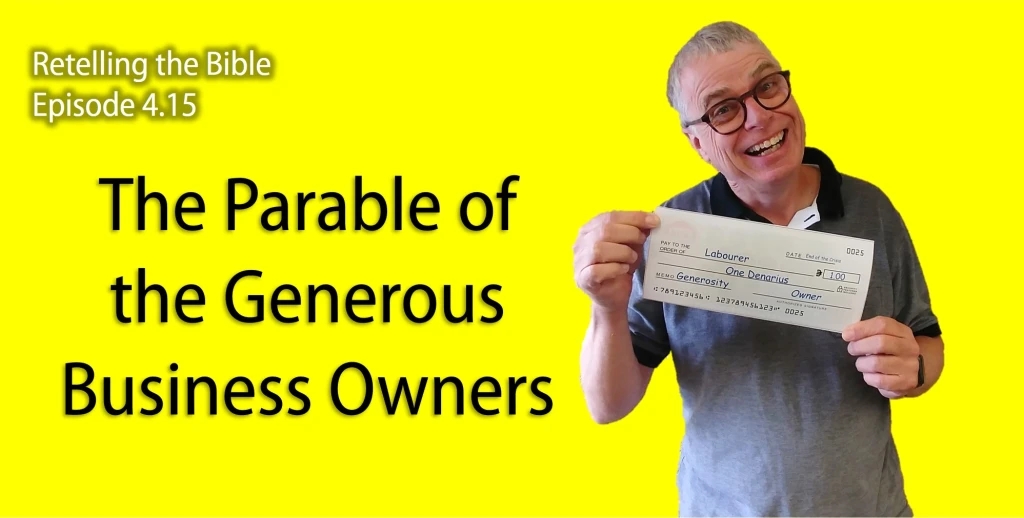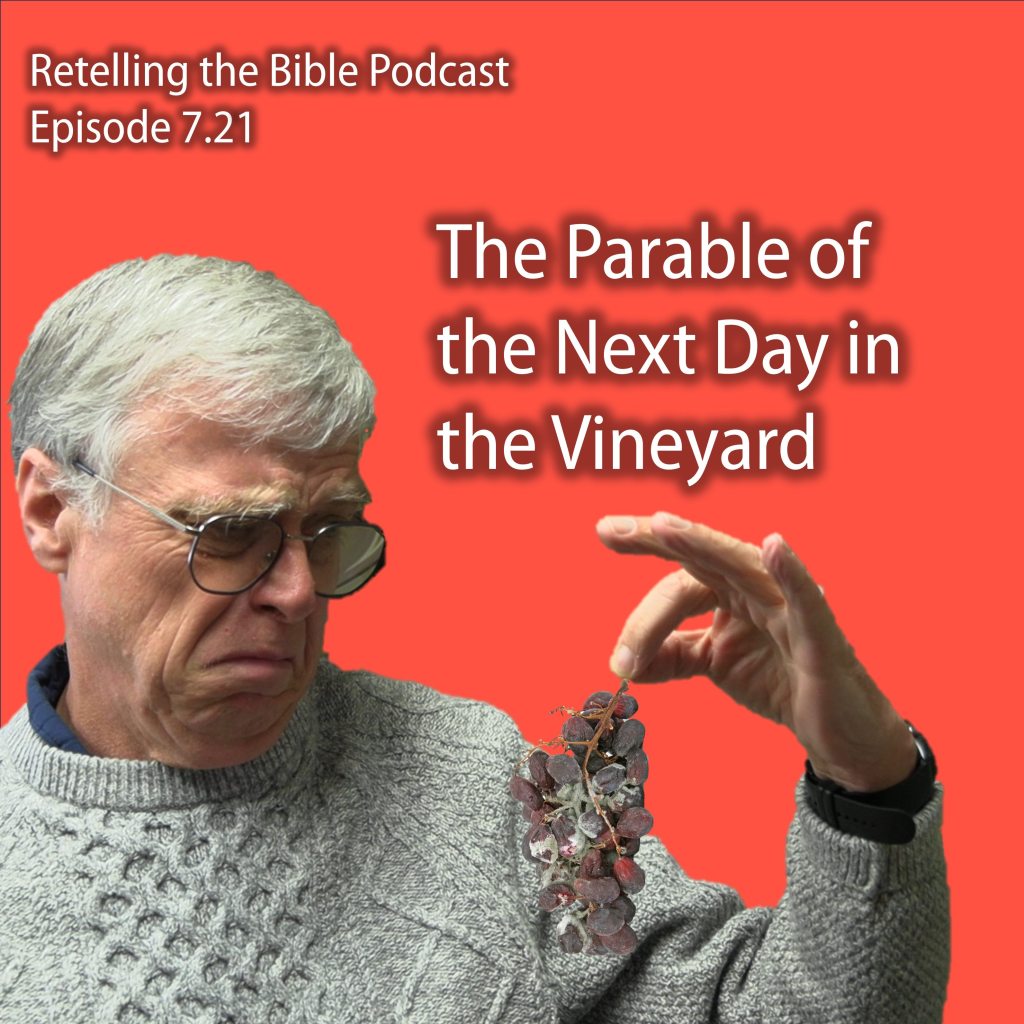The twenty-first episode of the seventh season of the Retelling the Bible Podcast is posted today (October 11, 2023). It tells the story of a dissident in the crowd who objected to Jesus’ Parable of the Workers in the Vineyard.
You can listen to the episode right now and subscribe to the podcast by following one of these links or by searching for the podcast on your favourite platform:
Show Notes about the Episode
This episode is based on the parable in Matthew 20:1-16. Direct biblical quotations in the episode are taken from the New Revised Standard Version Updated Edition.
Coming Back to this Story Again

I have actually already done an episode based on this parable. It was three years ago and the episode was #4.15 The Parable of the Generous Business Owners. I certainly commend that episode to you, but you will find it is quite different.
It was focussed on another view of the parable, particularly informed by the pandemic crisis. I think that you will find that this new take on it will take your thoughts in somewhat different directions.
A Bit of a Different Episode

Usually, in this podcast, I retell stories in a way that I hope leads people into a deeper understanding of a biblical story and how I have come to see it. But I admit that I have taken a different approach to this one.
This time I actually chose to give voice to the critics of the point of view that Jesus seems to be espousing in his parable as a way to illustrate the power of Jesus’ story by contrast.
The exercise led me to many reflections about Jesus’ use of stories and that is why the comment part of this episode is longer than usual.
Basic Universal Income Pilot
I discuss the Ontario Basic Universal Income Pilot in the episode.
You can find an outline of the pilot in this pdf: Ontario’s Basic Income Pilot.
And here is an article on the Government’s decision to cancel the pilot: https://www.pbs.org/newshour/economy/making-sense/ontario-is-canceling-its-basic-income-experiment
UBC Homelessness Study
I also discuss a study on homelessness that was carried out at the University of British Colombia. This is an article written by the researchers who conducted this study: https://www.msn.com/en-ca/health/other/we-gave-7-500-to-people-experiencing-homelessness-here-s-what-happened-next/ar-AA1gQpwK.
Media in this Episode
The following music was used for this media project:
Music: AhDah by Kevin MacLeod
Free download: https://filmmusic.io/song/3345-ahdah
License (CC BY 4.0): https://filmmusic.io/standard-license
Artist website: https://incompetech.com
Music: Summer Morning [Full version] by MusicLFiles
Free download: https://filmmusic.io/song/11262-summer-morning-full-version
Licensed under CC BY 4.0: https://filmmusic.io/standard-license
Sound effects by Pixabay.
Support Retelling the Bible
If you would like to support the work that I do creating these stories, go to patreon.com/retellingthebible and choose a level of support!











